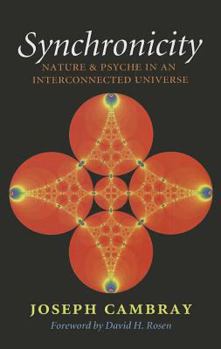Synchronicity: Nature and Psyche in an Interconnected Universe Volume 15
(Part of the Carolyn and Ernest Fay Series in Analytical Psychology Series)
Select Format
Select Condition 
Book Overview
In 1952 C. G. Jung published a paradoxical hypothesis on synchronicity that marked an attempt to expand the western world's conception of the relationship between nature and the psyche. Jung's hypothesis sought to break down the polarizing cause-effect assessment of the world and psyche, suggesting that everything is interconnected. Thus, synchronicity is both "a meaningful event" and "an acausal connecting principle." Evaluating the world in this...
Format:Paperback
Language:English
ISBN:1603443002
ISBN13:9781603443005
Release Date:January 2012
Publisher:Texas A&M University Press
Length:168 Pages
Weight:0.55 lbs.
Dimensions:0.5" x 5.5" x 8.4"
Customer Reviews
0 rating





